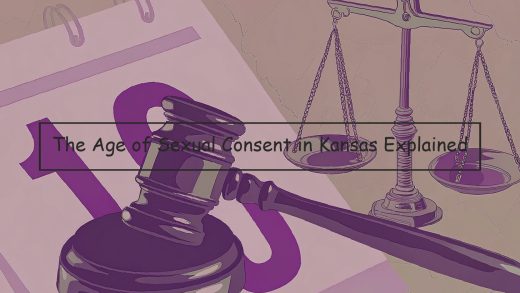
Overview of Breaks Under Idaho Labor Laws
Employees working under Idaho labor law are entitled to a short 10-minute paid rest period for every four hours or major fraction of four hours that are worked. The employer can designate when to permit these short breaks, except that such a period may not be required during the first or last hour of a work period. The Idaho Department of Labor has taken the position that the timing and scheduling of breaks must be reasonable, and that the employer may not use its management discretion to limit its employees’ breaks to only the maximum amount required by Idaho law. Employers should be aware that break periods should be in the middle of the work period to the extent this is practicable, and should not be required on either end of the workday, generally defined as the time period from the beginning of the shift to the end of the shift.
Idaho law does not explicitly require meal periods , but employers must consider that unpaid meal periods must be permitted when the period lasts 30 minutes or longer, and the employee is free from work duties during that period. The employee does not need to leave the work area, and the employer does not have to expressly relieve the employee of work duties in order for the period to qualify as a meal period, but the employee cannot be subject to interruptions or continuing obligations during the meal period. Examples of interruptions which may destroy the unpaid meal period include: requiring an employee to perform any other duties; permitting the employee to engage in personal errands; making the employee responsible for answering telephones or other calls; and indicating to the employee that the meal period must be attended to as a working matter.
Mandatory Breaks and Rest Periods in Idaho
The Idaho Legislature is not a fan of "time theft" by employees. They have minimized the importance of rest and meal breaks in their labor laws, and have made these break or rest periods optional for employees. The federal Fair Labor Standards Act (FLSA) has very specific rules for breaks—indicating how long they must be and that they are not paid for unless they’re longer than 20 minutes and you don’t need to do any work during them. Idaho law, on the other hand, says it’s strictly up to the employer to decide if breaks are offered or not. According to Idaho HR Laws, breaks are: "Encouraged but not mandated by law. Where provided, they likely would be considered hours worked only if they are so substantial that they effectively amount to subjecting employees to detention. If so, it would be considered hours worked and included as such in the regular rate for overtime pay." So while breaks are encouraged, they aren’t required. It is still legal for employers to not offer any rest or meal breaks to workers.
What Are the Employer Requirements and Expectations?
Employers are generally free to design their own meal and rest break policies as long as they comply with the legal minimum. The obligations imposed on employers in Idaho are modest. Most Idaho employers, however, may want to consider adopting a policy which is more employee-friendly, particularly if they employ employees who perform physical labor.
Idaho has adopted the federal laws relating to meal and rest periods, therefore, such policies should be reviewed with reference to federal law. Employers in Idaho must use their best efforts to provide employees with a 30 minute meal period within the first five hours of work. Because this meal period is unpaid, employees must be completely relieved of all duties, and must be free to leave the premises or perform any other tasks of their own by the time employee works for five hours. Such meal breaks can be unpaid only if they are at least 30 minutes long, and employees must be permitted to leave the premises.
With respect to rest breaks, Idaho law requires that a 10-15 rest period be provided in each four hour work period. An employer must use its best efforts to authorize and permit these breaks, however, where doing so is not practicable, an employer will not be found in violation of the law. Rest breaks must be counted as work time, however, and paid.
Currently, Idaho’s wage laws do not require the provision of other breaks, including a rest period for nursing mothers or lactation breaks.
What Are the Employee Considerations and Rights?
Employees in Idaho are entitled to an uninterrupted 30-minute unpaid meal break after six consecutive hours of work if all three of the following conditions exist: (1) the employer does not have an established policy of daily working hours of six or fewer hours; (2) there is no agreement between worker and employer otherwise; and (3) the employee is not performing a collective bargaining agreement. If employees are required to work at any point during their meal breaks, the breaks are considered to be PAID, "on the clock" service time under Idaho law. Only work that has not been requested by the employee for the benefit of the employer outside of normal service time can serve as a waiver of unpaid meal breaks. If all the above circumstances exist and an employee is forced to work during his or her 30-minute unpaid meal break, neither the employer nor the employee may alter the entitlement or duration of the break unilaterally.
When an employee has not been allowed adequate breaks and is not being paid properly for those breaks, the employee has the right to do the following: Employees should fulfill all of the above steps and file complaints with the appropriate agencies before seeking any other legal remedies.
Common Break Myths Under Idaho Laws
Common misconceptions about break laws in Idaho:
Employees Are Entitled To 10 Minute Breaks Or 15 Minute Breaks For Each 4 Hours Worked
In some cases, employers have misinterpreted the rules to mean that, regardless of the employee’s job duties, they must provide all employees with 10 minute breaks or 15 minute breaks for each four hours of work. That is not true. The law governing breaks for rest and meal periods does not require employers to provide these breaks at all, although employers who provide such breaks must adhere to the following limitations:
There Are No Exceptions To The Idaho Labor Law Regarding Breaks And Meal Periods
Labor laws are always open to interpretation. As a result , there are often several ways to interpret the meaning of a statute. Some employers are under the impression that breaks are mandatory, when in fact they are permissive under the law. Are there exceptions to the break laws in Idaho? While there may be some special circumstances in which Iowa courts permit some limited exception, the general rule as stated in the statute above is that breaks are not mandatory, but are only required when provided by the employer. So, there are no exceptions to the rule.
How Do Federal Labor Laws Impact Idaho Breaks?
Federal labor laws add another layer of complexity, and they may apply to private employers in Idaho. Idaho has adopted portions of the Fair Labor Standards Act (the "FLSA") and the rules and regulations that are part of the FLSA. Those rules include 29 CFR § 785.18. While, as noted above, Idaho workers are not strictly entitled to breaks, if an employer chooses to facilitate a work environment where breaks or meal periods are offered, and they fall under the scope of § 785.18, then the company is legally required to pay its employees for that time. Section 785.18 provides, in pertinent part: (a) Rest and meal periods. Rest periods of short duration, running from 5 minutes up to about 20 minutes, are common in industry and are customarily paid for as working time. These rest period are counted as time worked. Meal periods generally shall be long enough to be used as a basis for customarily accepted timing practices. A bona fide meal period does not include coffee breaks or time for laundry facilities. Shortest of all breaks should be established for each employee in advance in order to avoid confusion and to ensure compliance with the law. It may be best to create a written policy for your staff to sign stating that the brief break periods are mandatory. Federal labor laws differ from Idaho labor laws in that they specifically regulate brief breaks or short periods of absence when the employee is allowed to leave the work area.
Changes and Updates
While the FLSA does not require employers to provide breaks for employees, if such breaks are given, employers must pay for them if they are completely relieved of duty during these periods. Rest periods must not be less than ten minutes for each four hours worked. Typically employers provide shorter rest breaks, for example 15-minute rest breaks are often provided in two-hour increments, even though it is questionable whether 5-minute rest periods are legal. There is no statutory provision in Idaho law that requires an employer to pay for rest breaks or that limits the duration or frequency of rest breaks. Because such rest breaks are paid, no matter how short, they are not really breaks at all.
While the FLSA does not require employers to provide a lunch period, a covered employer which chooses to provide its employees with a lunch period may not deduct time from the wages of any employee who is required to remain at his or her work station during the lunch period (provided that the lunch period is at least 30 minutes in length) . This is so regardless of whether the employee is doing any actual work during the lunch period. Because such breaks are unpaid, we would anticipate that employers would maintain their policy of providing employees with 30-60 minutes for a meal period and directly deducting this time from employees’ time.
Idaho Wage and Hour Laws do not currently require employers to provide employees with 10-minute rest periods nor ban employers from making automatic deductions from employees’ paychecks for meal periods. However, as discussed above, some states now require its employers to be sure employees are free of all duties during rest periods (and thus paid for these periods). Meanwhile, others are prohibiting these deductions by banish such deductions from the timekeeping systems altogether.
It is unclear whether the State of Idaho will follow this trend toward more restrictive employment law. However, Idaho businesses should stay up-to-date on any developments.



